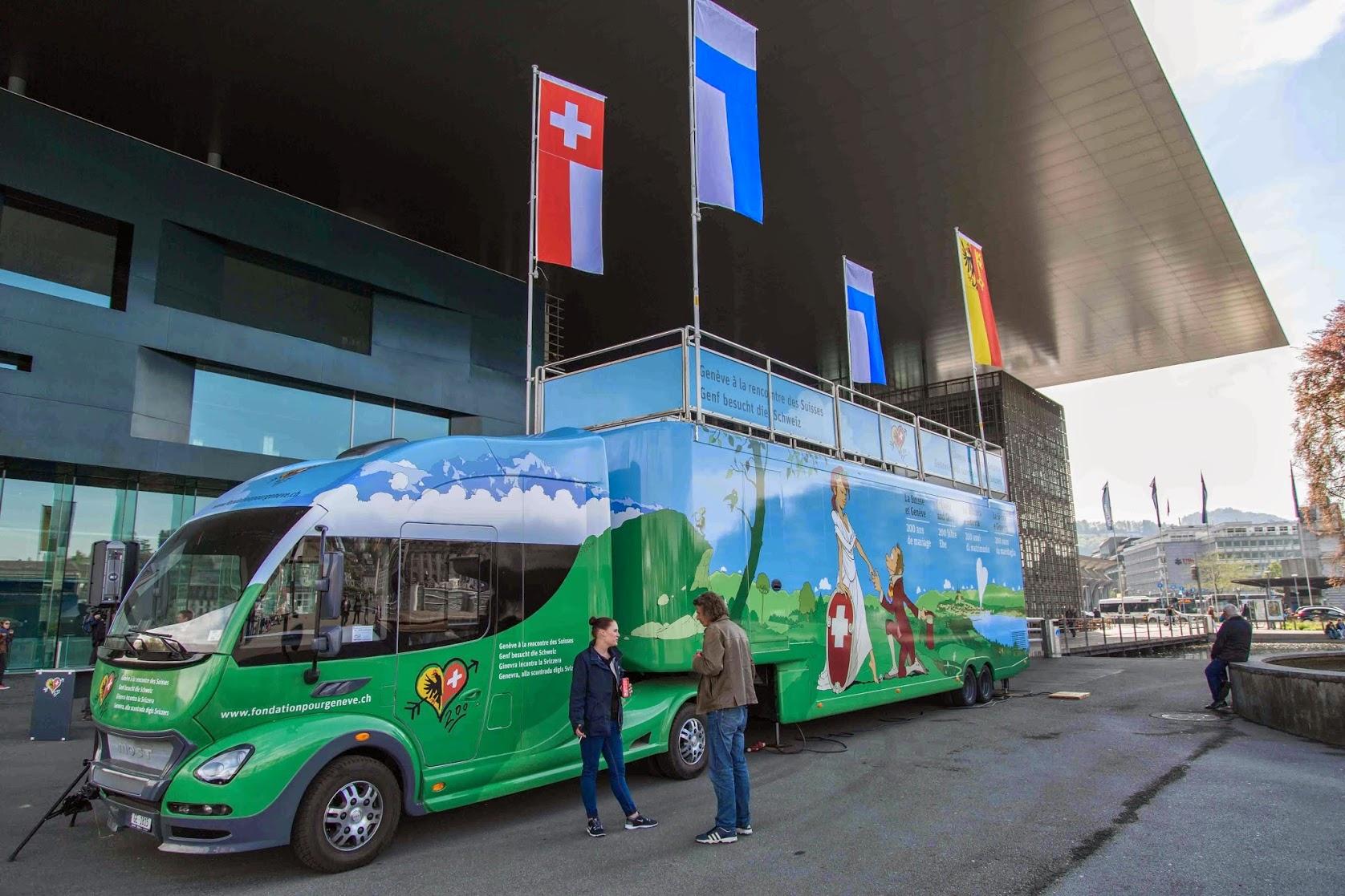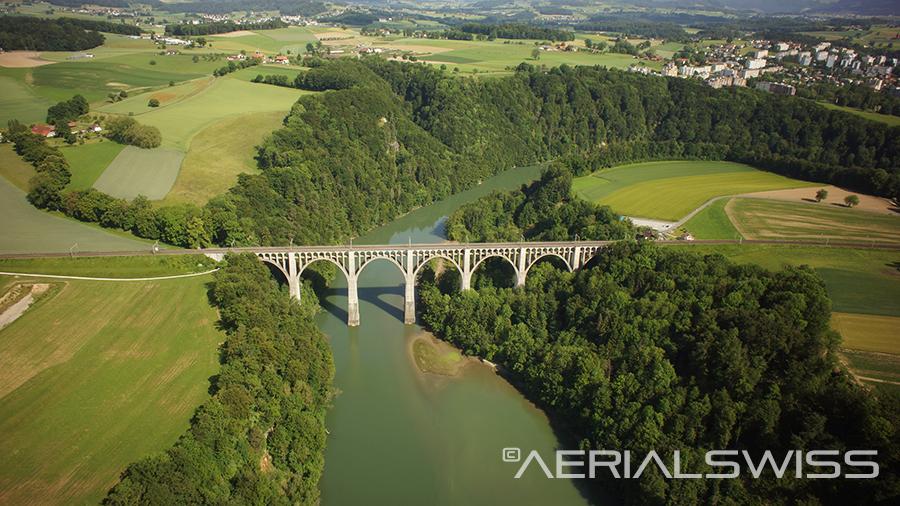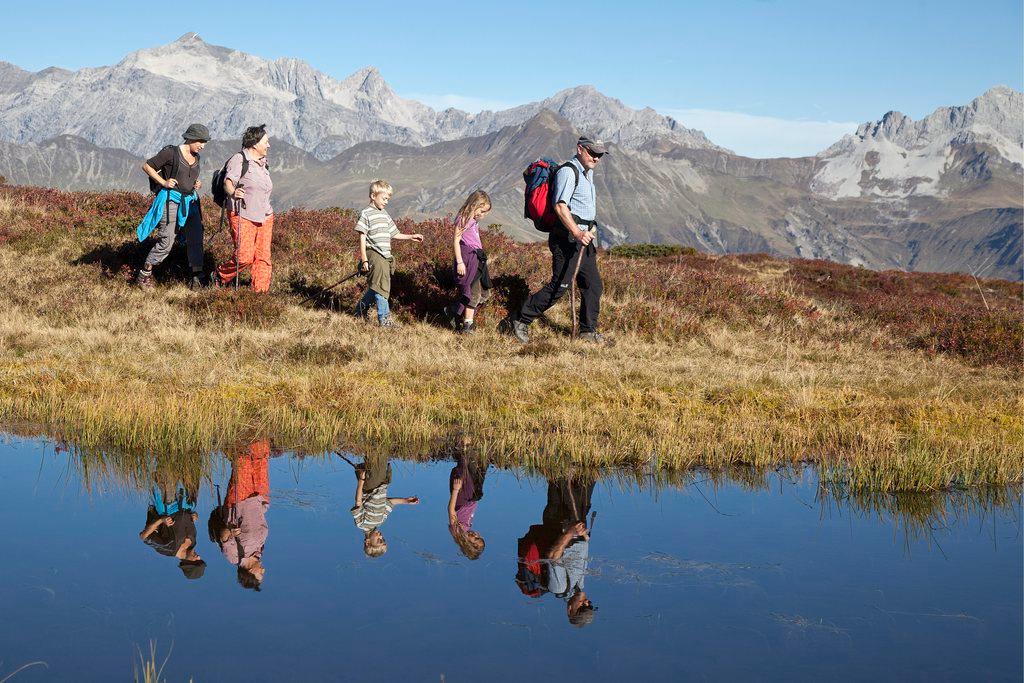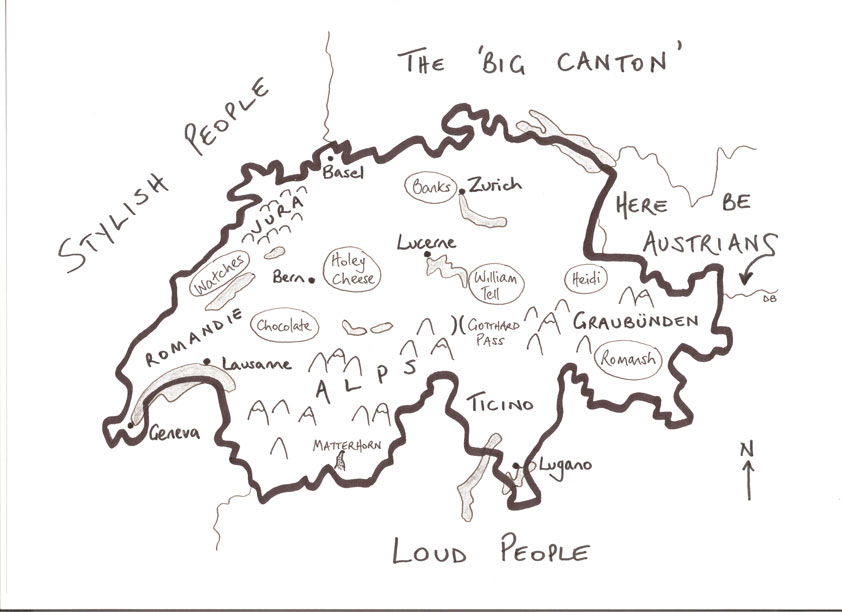
Geneva hits the road to seduce Swiss

Geneva is currently on an expensive roadshow to celebrate joining the Swiss Confederation 200 years ago – and to try to kill off some enduring clichés. swissinfo.ch went along to see if it’s working.
On a clear day Lucerne’s iconic KKL concert hall offers spectacular views of the city, lake and nearby snowy peaks. Today is slightly overcast, but another panorama is visible under its immense cantilevered roof: Geneva and its lake and surrounding countryside, drawn by Swiss comic artist Zep on the side of a huge promotional bus.
The German-speaking city in the middle of Switzerland is the latest stop-off on an ambitious CHF2 million ($2.1 million) PR offensive, organised by the Geneva authoritiesExternal link and largely funded by private donors, to celebrate signing up to the Confederation on May 19, 1815. The two-month tourExternal link is travelling to all 26 Swiss cantons.
Summer is just round the corner but love is definitely in the air. On the side of the bus, a gallant Geneva citizen kneels before the magnificent Helvetia with a heart-shaped Geneva fountain in the background.
“Geneva is surrounded 90% by France so there is a perception among the Swiss that we are slightly different. But we want to show them that we are 100% Swiss and say thanks to the Confederation for these 200 years of marriage,” said Ivan Pictet, a former senior partner at Pictet private bank – an old Geneva institution – and the brains behind the roadshow. “Without Switzerland, Geneva wouldn’t be such a unique international city.”
By choosing the French-speaking Zep, who designed the accompanying travelling exhibition about Geneva, the organisers insist they have opted for a modest, humorous approach. One of the main aims of the tour is to try to put an end to some of the clichés about Geneva: that they are an arrogant bunch more interested in France than Switzerland, bad at managing the state coffers and prone to so-called Genferei (local scandals unique to Geneva).
Stereotypical images came thick and fast during my visit to the German-speaking city.

More
What do the Swiss think of Geneva?
But, on the whole, the people I encountered seemed to have a positive view of Geneva.
Former Swiss Ambassador Luzius Wasescha, who has been helping coordinate the tour, said there were lots of things the cantons didn’t know about each other.
“Geneva is not just banks, the UN and a fountain. It’s also an agricultural canton – 42% of its territory is dedicated to farming,” Wasescha said.
Lucerne politician Lukas Gresch-Brunner, who visited the bus exhibition, said he was impressed by the roadshow.
“The bus shows that Geneva is important for our daily lives. In Swiss-German regions it seems a bit distant. I can’t say I know the word Genferei. It’s said a lot in Geneva but not here,” he said.
Several days earlier the tour stopped at the German-speaking town of Thun, where similar remarks could be heard.
“I think they are open people. The French-speakers are more relaxed than we are. If you know the language, you can live quite well there even if there are too many rich people and foreigners,” one woman told Swiss public radio RTS.
“The Greeks of Switzerland”
In 2012 the right-leaning German-Swiss current affairs magazine Die Weltwoche published an article titled “The Greeks of Switzerland”, taking a swipe at the French Swiss, and Geneva in particular, accusing them of being lazy, fond of a tipple and poor with money.
Killing off this stereotype of being an underdeveloped canton is a priority for Geneva officials, politicians and businesspeople who are meeting their counterparts during the tour.
“We want to show them we are a net contributor to Switzerland’s prosperity while we are often perceived as being a burden for the country with lots of international organisations and 50% of foreigners based here. But we are the third-largest contributor to the financial compensation scheme in Switzerland – in which wealthier communities transfer funds to needier ones,” said Pictet.
Later that week, Geneva’s economics minister, Pierre Maudet, met Zurich officials and bank representatives to discuss the issue of Chinese banks setting up in Switzerland. At the Zug stop, talks are planned with commodities representatives including executives from locally based trader Glencore. Geneva is a main hub and competitor for commodities trading.
Explaining “International Geneva”
On the day of my visit, the bus was hardly mobbed by hordes of curious Lucerne residents. One of the organisers blamed poor publicity. But in the afternoon groups of schoolchildren filed into the bus under the KKL roof to listen to audio guides on Geneva culture while others hung around outside reading information stands.
“What does WIPO do?” one bewildered child asked their teacher.
The roadshow hopes to pass on a better understanding of what “International Geneva”External link really means for Switzerland. Geneva is home to the headquarters of 32 international organisations, such as the World Health Organization, the International Committee of the Red Cross and the perhaps lesser known World Intellectual Property Organization (WIPO).
“We want to show that anyone on this planet from the moment they get up in the morning they are influenced by dozens of decisions taken in Geneva on things like trade, employment, health, immigration and human rights,” said Pictet.
“International Geneva” is worth around CHF3 billion a year to the canton and explaining this to Swiss politicians is also a key message during the two-month jaunt.
“The Palais des Nations [European UN headquarters] needs to be renovated, which is a costly exercise and basically in the hands of the United Nations, but as host nation Switzerland does a bit more. We have to convince all our members of parliament that it is important to support our cause and also to support International Geneva which is the platform by which we are known all over the world,” said Wasescha.
“Parliament has the perception that they always are paying for Geneva but we want to show them that part of our income is actually coming from Geneva.”
In 1798 the French revolutionary government conquered Switzerland and imposed a new unified constitution. On April 15, 1798, one month after occupying Bern, French troops invaded Geneva and annexed it to France. Geneva, under the protection of Napoleon Bonaparte from 1802, remained in French hands until 1813.
On December 13, 1813 the Austrian army chased French troops from the city allowing Geneva to regain its independence. But in order not to remain isolated Geneva decided to join the Swiss Confederation.
To do so Geneva had to become separate from French territory and present a new constitution. Swiss-German Catholic cantons were suspicious of the Swiss “Protestant Rome”. Congresses in Vienna and Paris fixed new borders to the canton. Twelve French Savoie communes and six communes from the French Gex region were added to Geneva territory. The new constitution was voted by Geneva citizens on August 14, 1814.
On May 19, 1815, Geneva officially joined the Swiss Confederation. Cantons Valais and Neuchâtel also joined the same year.
(From the City of Geneva websiteExternal link)

In compliance with the JTI standards
More: SWI swissinfo.ch certified by the Journalism Trust Initiative






































You can find an overview of ongoing debates with our journalists here . Please join us!
If you want to start a conversation about a topic raised in this article or want to report factual errors, email us at english@swissinfo.ch.